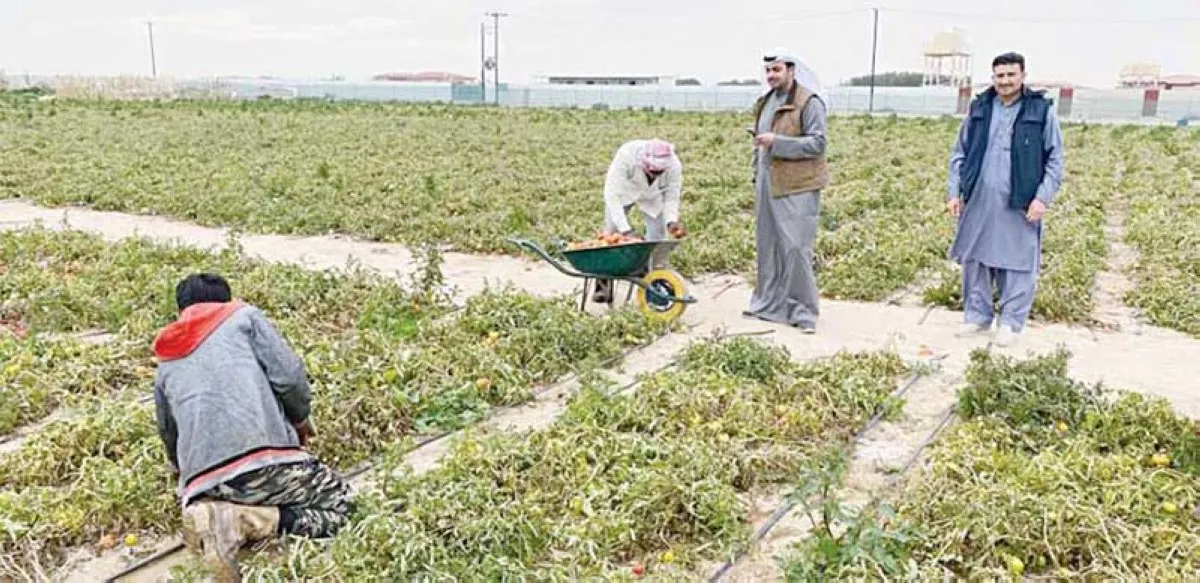27/08/2024
27/08/2024

Jaber Marzouq Al-Azmi, President of the Kuwaiti Farmers’ Union, stands proudly on a farm in Kuwait, alongside farmers showcasing their dedication to local agriculture.
KUWAIT CITY, Aug 27: Jaber Marzouq Al-Azmi, President of the Kuwaiti Farmers’ Union, has praised the role of Chinese technology in advancing the agricultural sector in Kuwait. He emphasized that alongside the expertise of Kuwaiti farmers, increased local consumer awareness, and government support, this technology has contributed to achieving self-sufficiency in more than 20 crops.
In an exclusive interview with Xinhua News Agency, Al-Azmi highlighted, “Chinese agricultural technology, along with the materials and supplies we import in large quantities from China, has played a crucial role in developing and enhancing plant resources in Kuwait.” He noted that the majority of modern agricultural equipment and supplies used in Kuwaiti farms are of Chinese origin, ranging from heavy and light machinery to electronic cooling panels, ventilation fans in greenhouses, pesticides, fertilizers, drip irrigation systems, and protective covering materials.
Al-Azmi pointed out that agricultural trade with China has been steadily increasing over the past 20 years, expressing hope for further cooperation with Chinese agricultural companies to achieve Kuwait’s desired food security. He affirmed that Kuwait’s agricultural sector is witnessing significant development, with self-sufficiency achieved in over 20 crops, thanks to the expertise of Kuwaiti farmers, increased local consumer awareness, government support, and the contribution of Chinese agricultural mechanization.
Al-Azmi explained that various agricultural sectors in Kuwait, including crop production, livestock, and aquaculture, are achieving remarkable milestones. He added that there are around 7,500 productive farms in Kuwait, mainly in the Al-Wafra and Al-Abdali regions, producing a wide variety of crops. He further noted that many Kuwaiti farmers, who were once enthusiasts or hobbyists, have now become professionals in agriculture.
These farmers have adapted to the high summer temperatures using modern agricultural equipment, cooled greenhouses, and heat-resistant seeds. Al-Azmi emphasized, “Kuwaiti farmers now have substantial experience in cultivation, protection, production, and even in successful agricultural marketing.”


